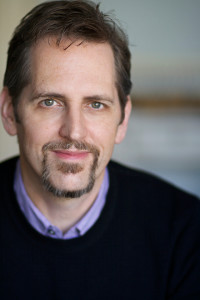What is your story really about?
I know it’s about certain characters and plot events.
But what’s it examining, behind all that, which could resonate for audiences?
What life issues does it explore?
The answer to that is “theme.”
I say “explore” because the best themes don’t have easy answers or conclusions.
And theme is not an obvious value judgment that most would agree with.
For instance “Racism is Bad.” Or “Climate Change Needs to be Addressed.”
Such sentiments might be present in your story and may even be your reason for writing it.
But “theme” tends to be an examination of competing values, with a lot of nuance.
Something richer, deeper and more complicated.
For instance: The Godfather weighs family loyalty against individual preference and the final verdict is… complicated. It also explores several other themes that are similarly nuanced. (Can you name some in the comments below?)
Save the Cat’s “Beat Sheet” suggests a “Theme Stated” beat around p.5.
Meaning someone hints at the theme, in dialogue often spoken to the main character.
In Blake Snyder’s follow-up book, Save the Cat Goes to the Movies, he suggests the Theme Stated in The 40-Year-Old Virgin as the moment when Andy’s neighbor says “That guy has got to get laid.”
Then Snyder asks, is this true? Is sex necessary to a good and happy life? (I would add: “including pre-marital sex with a variety of partners?”)
It’s really an opinion stated by the neighbor, that raises questions the movie explores. Does Andy need to get laid? What should be his approach to his virginity, his new friendships and the woman he starts dating?
The movie kind of comes out on the side of ignoring the friends and following his instincts. But it’s not cut-and-dried or black-and-white. He does enjoy making these friends and they do try to help. He experiments with their approach. But as the story plays out, eventually he goes his own way.
Theme gives the audience something to chew on, to consider, that applies to life beyond the story. It’s part of the fun of experiencing the story, these thematic questions. And multiple perspectives on a thematic issue are depicted and weighed.
My book The Idea uses the acronym PROBLEM (since every story is about one) to present what I think are the 7 elements to a viable story concept.
The final element, the “M,” is for Meaningful. And Meaning comes from Theme.
It’s appropriate that this is the last of the 7 elements because I think theme often emerges late in the development of a story. And that’s not a bad thing. You don’t have to know it upfront.
And you don’t need a “Theme Stated” beat in early drafts of a beat sheet.
In fact, one thing that can really hamper a script in meeting those other 6 elements (Punishing, Relatable, Original, Believable, Life-Altering, Entertaining) is when a writer puts Meaningful (or “theme”) first.
Or their idea of theme, which often is more of a “message” they want to send to the world, or a way in which they hope their movie will change the world, inspire people, create movement on an issue, etc.
Are stories good at this? And is this a good reason to write one, as the main intent?
I usually say “no,” on both counts.
Audiences don’t consume scripted film and TV to be educated or convinced about issues. Documentaries, maybe. Non-fiction books, perhaps. Articles and blog posts. But movies and TV? Not really.
That doesn’t mean such works can’t push cultural conversations in certain directions. But usually that’s not the reason they were made, or the first priority of the writers. They don’t exist to try to convince people of something. That rarely works.
For instance, the series Will & Grace arguably made gay characters and relationships more palatable for mass audiences and played a part in the U.S. shifting on that front, leading to policy and legal changes.
But it was primarily a screamingly funny entertainment vehicle that wasn’t trying hard to do anything like that. It just treated its characters and lives as a viable basis for a sitcom. Period.
But I digress, somewhat, because a “message” like “Gay Marriage Should Be Legal” in a story trying to change minds isn’t a “theme” anyway, as I define it.
But it’s often what writers think theme is all about.
Another confusing way people talk about “theme” is when they say something like, “The film explores themes of… motherhood” or “the refugee experience” or “out-of-control technology.”
Those aren’t themes. Those are topics. Or settings. Or story elements.
Now if a film explored the challenges of motherhood for someone with a demanding job, and focused on the costs, challenges and compromises in that, and weighed out the options in a nuanced way, as she struggles with the best path forward, with no easy answers, like Erin Brockovich does, then you have theme.
Or if a story showed technology greatly helping improve someone’s life while at the same time leading to great risks or unintended negative effects, that’s also theme.
Now I’m not saying the author and story can’t have their own take on a “right” answer to such thorny questions in their themes. I’m just recommending you explore all sides, and not be heavy-handed, obvious or black-and-white about theme.
And that you earn the conclusions you’d like an audience to come away with through what you’ve dramatized. This is not easy to do. At all.
My thoughts on theme were shaped a lot by the Dramatica theory and software for story, which teaches that a good theme has two sides, each of which can be good or bad depending on the situation, and which contrast with each other over the course of a story. Often it can look like competing goods or competing evils. Or a good that has an evil. Or an evil that has a good.
This appeals to me because I’m a big believer in nuance and “gray areas.” And I think simplistic judgments are usually boring or unconvincing for audiences.
So how do you figure out your themes? (And you can have more than one!)
I encourage you to let them emerge gradually as you develop a story. When you know what you’re looking for, you may find you’re exploring certain themes without realizing it and can then consciously choose to massage how you do that, to create the greatest impact and meaning. While also reflecting the complexity of life and being human.
It’s one of the trickiest areas to master for writers but also perhaps the most rewarding.
Check out the “Meaningful” chapter in my book or the 5 “Meaningful” units in my online course (30-day free trial with no credit card required!) for more…



Looking forward to this feature. And what a timely article. I recently read through a completed short script before submission and realized something was missing. Then this new post and I knew. Though entertaining, my script wasn’t about anything—no meaningfulness there. No theme. Even kicking up the entertainment factor wouldn’t overcome the flaw (though I know scripts for high-action films can benefit from that fix). I also remember Dr. Johnson’s guideline—inform and entertain. Meaningfulness is essential. Thanks, Erik.
Fun paraphrase from Grayson Perry (artist), “A polemic has no gristle.”
This is, once again, a great post, Erik. It’s certainly your personal take on “theme” but it I can honestly say that it was an eye-opener for me on the subject.
Re-thinking your The Godfather example from your post’s perspective: could it be that those movies play a lot with the question if being a mobster of a mafia family is a cool thing where you’re rich and free to do whatever you want or a terribly romanticized, gory world where death and betrayal wait at every corner not letting you have any true freedom at all.
I like that definition too, Sandra (“drama is conflict of values”), and was about to say that, to my mind, The Godfather weighed family loyalty against moral integrity, not “individual preference” – unless we mean by that simply greed and thirst for power. Michael is the one the family tries to keep untainted by all their crimes, and what he desires himself – till his fears for his family, and his realization that no one else has the cool-headed intelligence necessary to its leadership after Brando dies wins out, and turns him into a ruthless murderer too.
I definitely agree that you must not be heavy-handed and must explore all sides once you’ve focused on a theme or issue. But I disagree with the idea that audiences never watch a film or TV to be educated or to learn about an issue. The Oscar-nominated “The Trial of the Chicago 7” was my favorite film of 2020. Sorkin, who wrote it, “educates” us successfully often (“The Social Network”, “Charlie Wilson’s Wars”), as does Adam McKay and others. Oliver Stone’s practically made a career of it, and filmmakers like Damon & Affleck tend toward films of substance too, thank God.
I’d prefer to say the key to making political, historical or issue-related films is to also make them entertaining, relatable AND accessible. I’ve seen many that were just too confusing to pull me in. (Which reminds me of another favorite, “Miss Sloane”, which had a somewhat confusing, and I think, purposely misleading start. Then turned out to be brilliant. It’s about the gun lobby and political manipulations. Very worth a watch, imo.)
I know you’re citing what most producers say: entertain don’t educate. But these and other films prove you can do both, and I wouldn’t say it’s not the ‘first priority of the writers’ myself. I also hear a LOT of complaints these days about too many films with nothing to say that all resemble each other. Our family flips through Netflix hard-put to find anything that grabs us enough to watch these days. Feels like we’ve them seen them all before. And I know we’re far from alone in that impression. Once you’ve seen a half dozen or so, it seems like you’ve seen them all.
I think Truby defines “drama” as a “conflict of values.” I like that definition for drama. You better have a conflict of values in your story if you want me to remember it. Cartoon villains are two-dimensional Evil. A conflict of values used to create drama needs each character to believe they are the hero, and their values are correct, which I think supports your point about a good theme having two sides (although there are often many more than two).
I have noticed a recurring theme in stories: how do you trust someone else? Or maybe, who can be trusted? So many stories have an exploration of the problems of deciding who to trust, from love stories to thrillers, war stories to sports competition, coming of age. Sometimes the hero can’t trust and sometimes it’s just difficult to figure out who is trustworthy. I think it recurs because that’s innate biologically whenever we see a stranger approach–even cats have this urge to determine friend or foe.
I’m not sure the above fits your definition of “theme,” but I do think it matches well with musical “themes,” composed of common ways in which people figure out who they can rely upon.